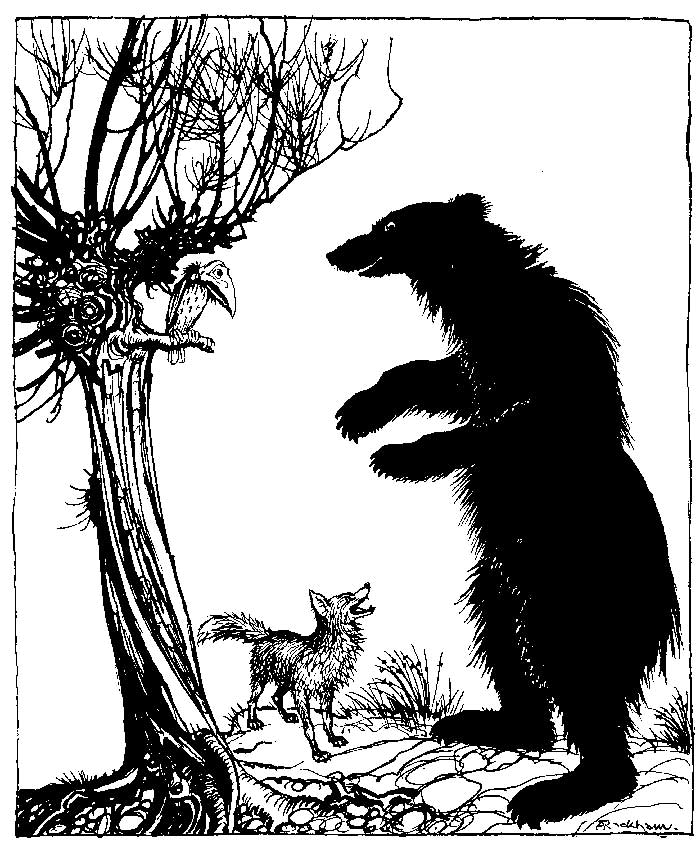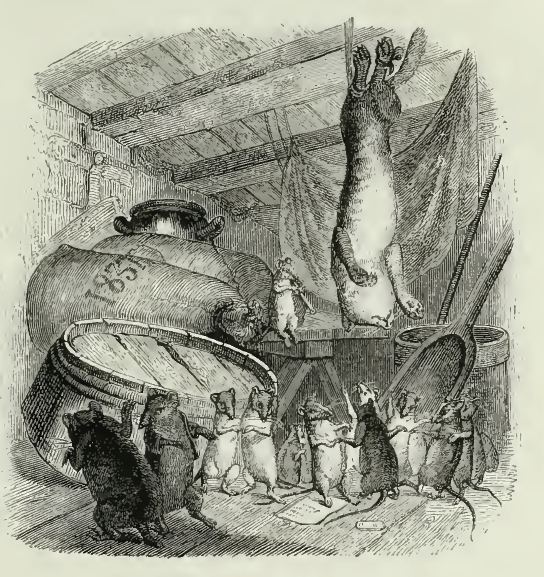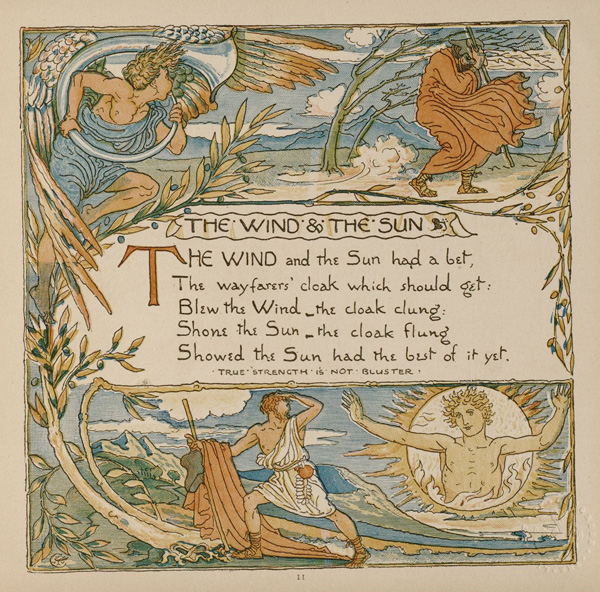THE HUSBANDMAN AND THE STORK (Greek)
Thin nets a farmer o'er his furrows spread,
And caught the cranes that on his tillage fed
And him a limping stork began to pray,
Who fell with them into the farmer's way:
"I am no crane: I don't consume the grain;
That I'm a stork is from my colour plain;
A stork, than which no better bird doth live:
I to my father aid and succour give."
The man replied: "Good stork, I cannot tell
Your ways of life, but this I know full well,
I caught you with the spoilers of my seed:
With them with whom I found you, you must bleed."
Walk with the bad, and hate will be as strong
'Gainst you as them, e'en though you no man wrong.

THE BEAR AND THE FOX (Greek)
A Bear for man was boasting fondness rare,
Whose corpse, he urged, he was not wont to tear.
To whom quoth Reynard, "Were the choice my own,
You should tear corpses, but let life alone."
Let none that hurt my life, my death bemoan.

THE WOLF AND THE NURSE (Greek)
A country nurse, to fright her babe to peace,
Said, "Wolf shall have thee, or thy cries must cease."
The wolf o'erheard, believed the scolding crone,
And stay'd in hopes to find the feast his own.
But evening came; the babe was hush'd to rest:
The wolf still gaped, with rav'ning hunger prest.
At last his hopes to utter dulness grew;
Then to his anxious helpmate he withdrew.
"How cam'st thou empty?" said she. He replied,
"Because upon a female I relied."

THE CAT AND THE COCK (Greek)
A Cat that ambush'd for some house-birds lay,
Swung itself, baglike, from a peg one day.
'Twas seen by a sagacious shrewd-tongued cock,
Which shrilly thus began the cat to mock:
"Full many bags I've noticed heretofore:
But none the grinders of a live cat bore."

THE NORTH WIND AND THE SUN (Greek)
Betwixt the North Wind and the Sun arose
A contest, which would soonest of his clothes
Strip a wayfaring clown, so runs the tale.
First Boreas blows an almost Thracian gale,
Thinking perforce to steal the man's capote;
He loos'd it not, but as the cold wind smote
More sharply, tighter round him drew the folds,
And sheltered by a crag his station holds.
But now the Sun at first peer'd gently forth,
And thaw'd the chills of the uncanny north;
Then in their turn his beams more amply plied,
Till sudden heat the clown's endurance tried.
Stripping himself, away his cloak he flung;
The Sun from Boreas thus a triumph wrung.
The fable means, "My son, at mildness aim:
Persuasion more results than force may claim."

No comments:
Post a Comment
Comments are limited to Google accounts. You can also email me at laurakgibbs@gmail.com or find me at Twitter, @OnlineCrsLady.